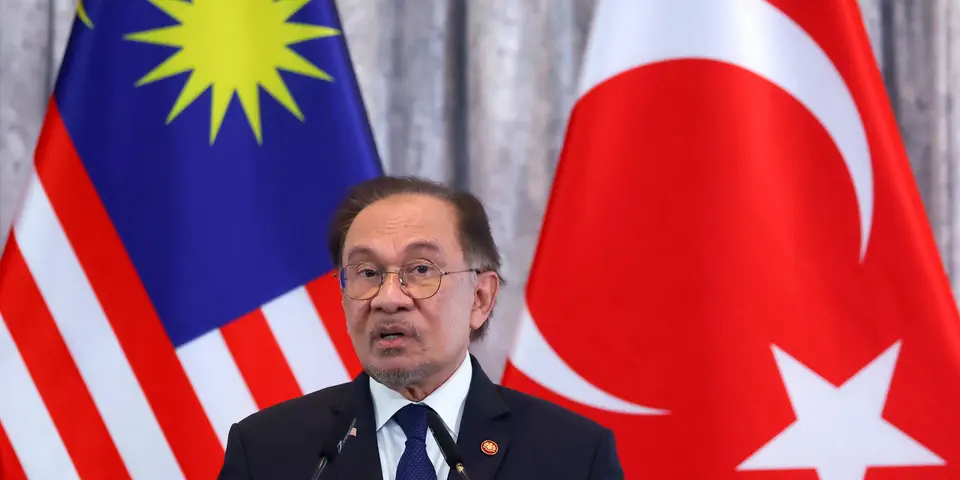
APHR Alarmed by ASEAN Chair’s Meeting with Myanmar Junta Chief
April 16, 2025

JAKARTA, 16 April 2024— The ASEAN Parliamentarians for Human Rights (APHR) expresses deep alarm over the scheduled meeting this week between Malaysian Prime Minister Anwar Ibrahim as ASEAN Chair and Myanmar junta leader Min Aung Hlaing in Bangkok.
Such engagement—absent of any conditions, transparency, or commitment to accountability—risks legitimizing a regime responsible for widespread atrocities, while severely undermining regional efforts to restore peace, democracy, and the rule of law in Myanmar.
Since the military coup in February 2021, Myanmar has plunged into an escalating human rights and humanitarian crisis. The junta has committed grave international crimes, including mass killings, arbitrary detentions, torture, and aerial bombings targeting civilians. Over three million people have been forcibly displaced, while the junta continues to defy ASEAN’s Five-Point Consensus and rejects any meaningful dialogue or inclusive political solution.
“Since the 2021 coup, no ASEAN Chair has met with the junta leader—an intentional diplomatic stance that denied legitimacy to the regime,” said Rangsiman Rome, APHR Board Member and Member of the House of Representatives of Thailand. “Prime Minister Anwar’s decision to break this precedent threatens ASEAN’s credibility and downgrades the regional consensus built over the past three years.”
Charles Santiago, APHR Co-chairperson and former Malaysian MP, echoed this concern, “diplomacy must not come at the cost of legitimizing a brutal and criminal regime. As the chair of ASEAN in 2025, Malaysia must lead with conviction—championing a rights-based, people-centered approach rooted in justice, not appeasement.”
APHR acknowledges Malaysia’s previous leadership in advocating for a principled ASEAN response. However, this direct engagement with the junta’s chief—particularly in the absence of conditions, transparency, or the inclusion of legitimate Myanmar stakeholders—contradicts Malaysia’s moral and diplomatic leadership and threatens to fracture ASEAN’s already fragile unity on the Myanmar crisis.
“Meeting with Min Aung Hlaing without demanding tangible progress towards ending violence or restoring democracy sends a dangerous signal—not only to the people of Myanmar, but to the wider region,” said Mercy Chriesty Barends, APHR Chair and Member of the House of Representatives of Indonesia. “It emboldens a military regime that has weaponized humanitarian aid, suppressed democratic voices, and committed unspeakable atrocities with impunity.”
Reports indicate that Min Aung Hlaing plans to meet ASEAN leaders under the guise of coordinating humanitarian aid following the recent earthquake. APHR strongly cautions against the junta exploiting humanitarian concerns to gain diplomatic legitimacy.
“Humanitarian aid must be principled—neutral, impartial, and needs-based,” said Angelina Sarmento, APHR Board Member and Member of Parliament of Timor-Leste. “Routing assistance through a regime that controls only a fraction of the country and actively obstructs relief to opposition-held areas will not help those in need. It will entrench their suffering.”
APHR emphasizes that credible and effective humanitarian assistance must be coordinated with all relevant actors, including the National Unity Government, ethnic resistance organizations, and civil society. It must not be instrumentalized to bolster the junta’s control or its hollow plans for a military-orchestrated election.
“The people of Myanmar have made their rejection of the junta’s rule abundantly clear,” said Arlene Brosas, APHR Board Member and Member of the House of Representatives of the Philippines. “ASEAN must stand with the people—not the perpetrators of tyranny. Legitimizing the junta betrays ASEAN’s core principles and the aspirations of millions who continue to resist military rule.”
As Malaysia holds the ASEAN Chairmanship this year, APHR urges Prime Minister Anwar Ibrahim to reaffirm his country’s longstanding commitment to democracy, human rights, and regional peace. This includes rejecting any engagement that grants undue recognition to the junta, ensuring ASEAN-led efforts are inclusive and transparent, and placing the democratic will of the Myanmar people at the heart of all responses.
COVER PHOTO: Turkish President Erdogan visits Malaysia (FAZRY ISMAIL/EPA IMAGES)
ASEAN Parliamentarians for Human Rights (APHR) was founded in June 2013 with the objective of promoting democracy and human rights across Southeast Asia. Our founding members include many of the region's most progressive Members of Parliament (MPs), with a proven track record of human rights advocacy work.